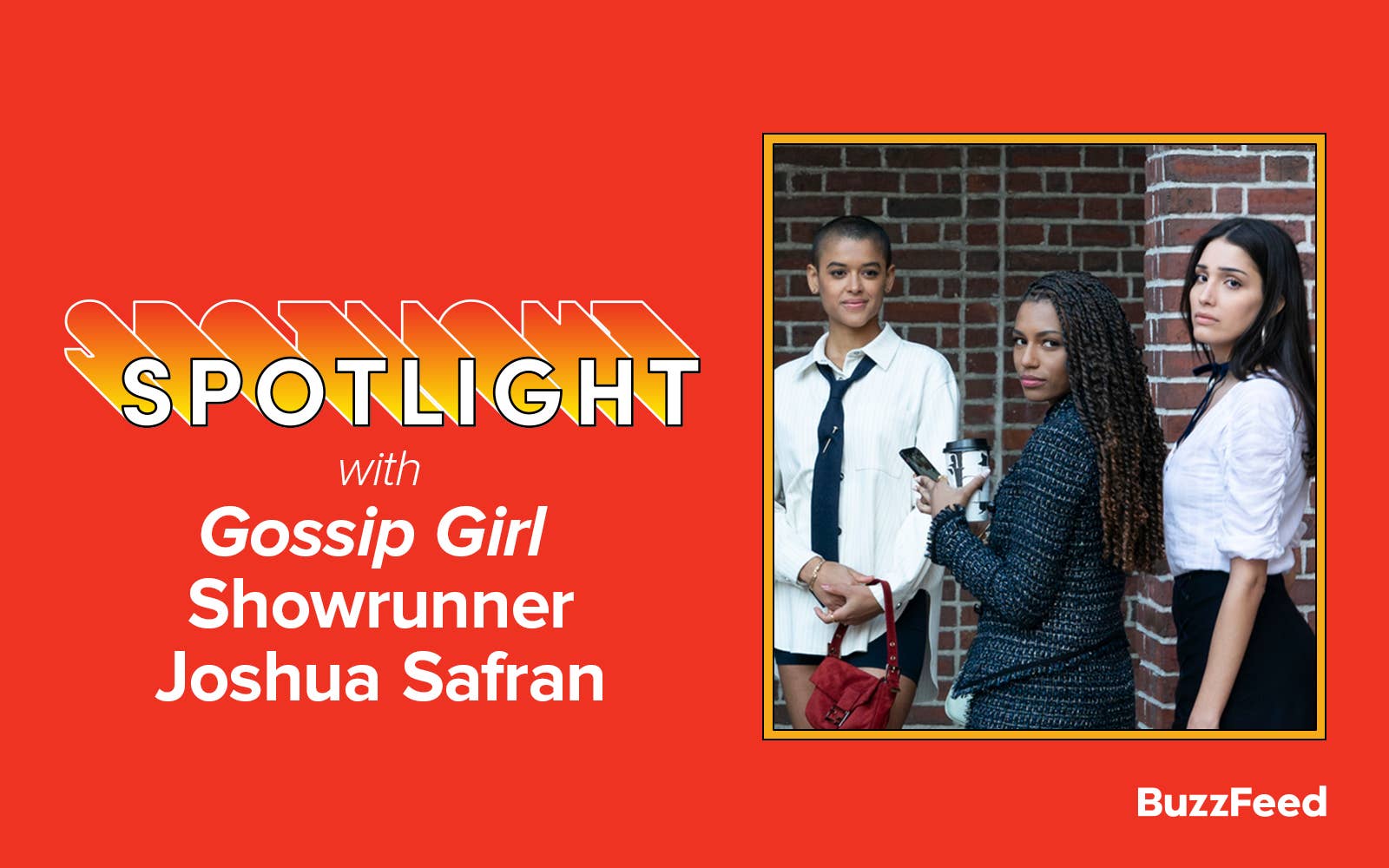
Attention Upper East Siders: The new Gossip Girl is officially out! Ahead of its release, we (virtually) sat down with showrunner Joshua Safran — who was also an executive producer on the original series — to find out how the new series came together and what exactly he thinks about the original Gossip Girl identity all those years ago.
1. Conversations about a new Gossip Girl started a few years after the original series ended — but was initially thought of as a movie.
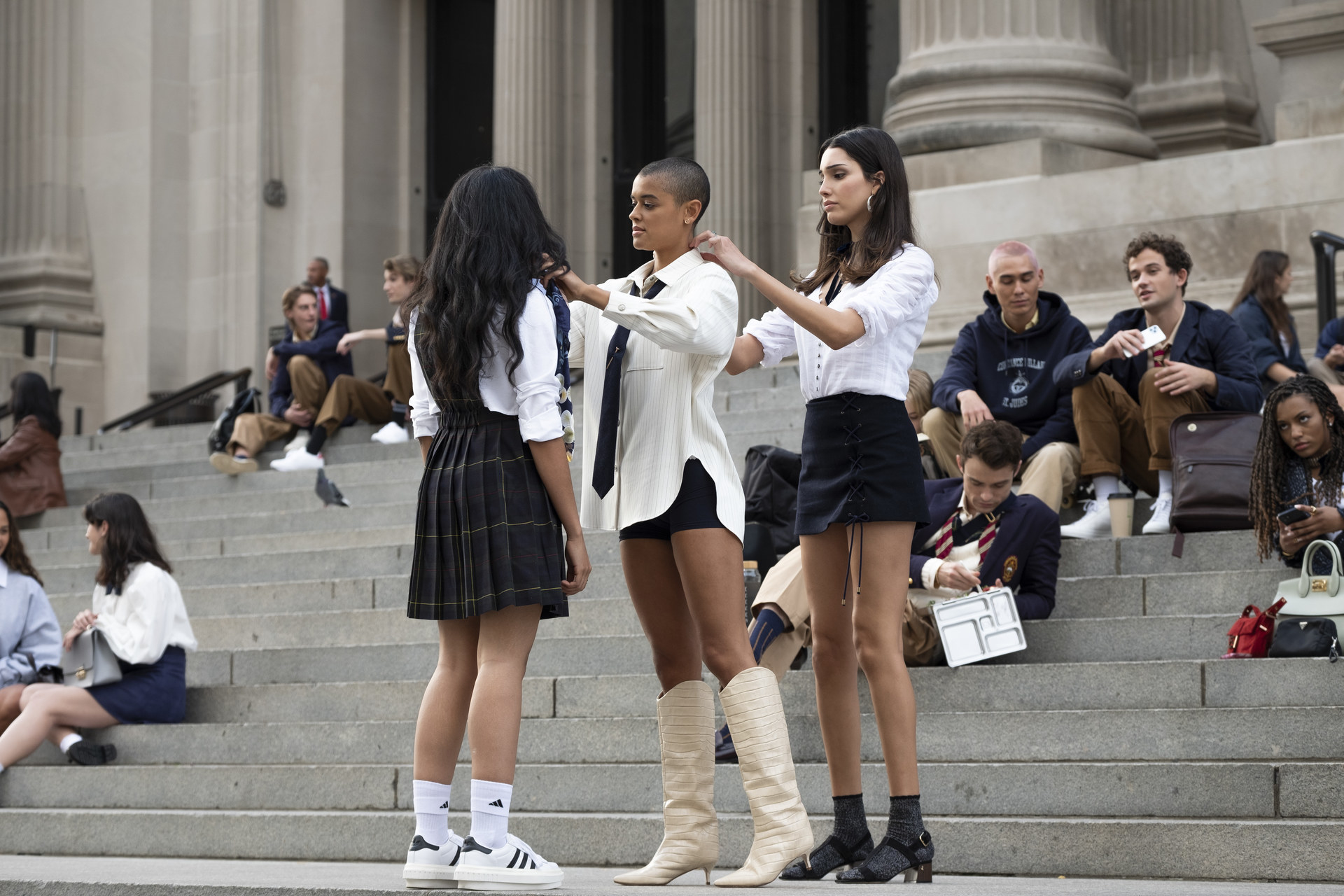
"Not with the original cast — I think it was always a version of a reboot, even though it's a term that I don't love. I don't think there was ever a continuation of [the original] storyline, because they flash forward in five years, and they felt like they ended that story."
2. Joshua only agreed to do the new Gossip Girl series if it meant that he could explore the teachers' lives.
"This allowed the show to be more than just doing what we did before, nine years later."
3. And the teachers' stories were partially inspired by IRL stories from teachers he knows.
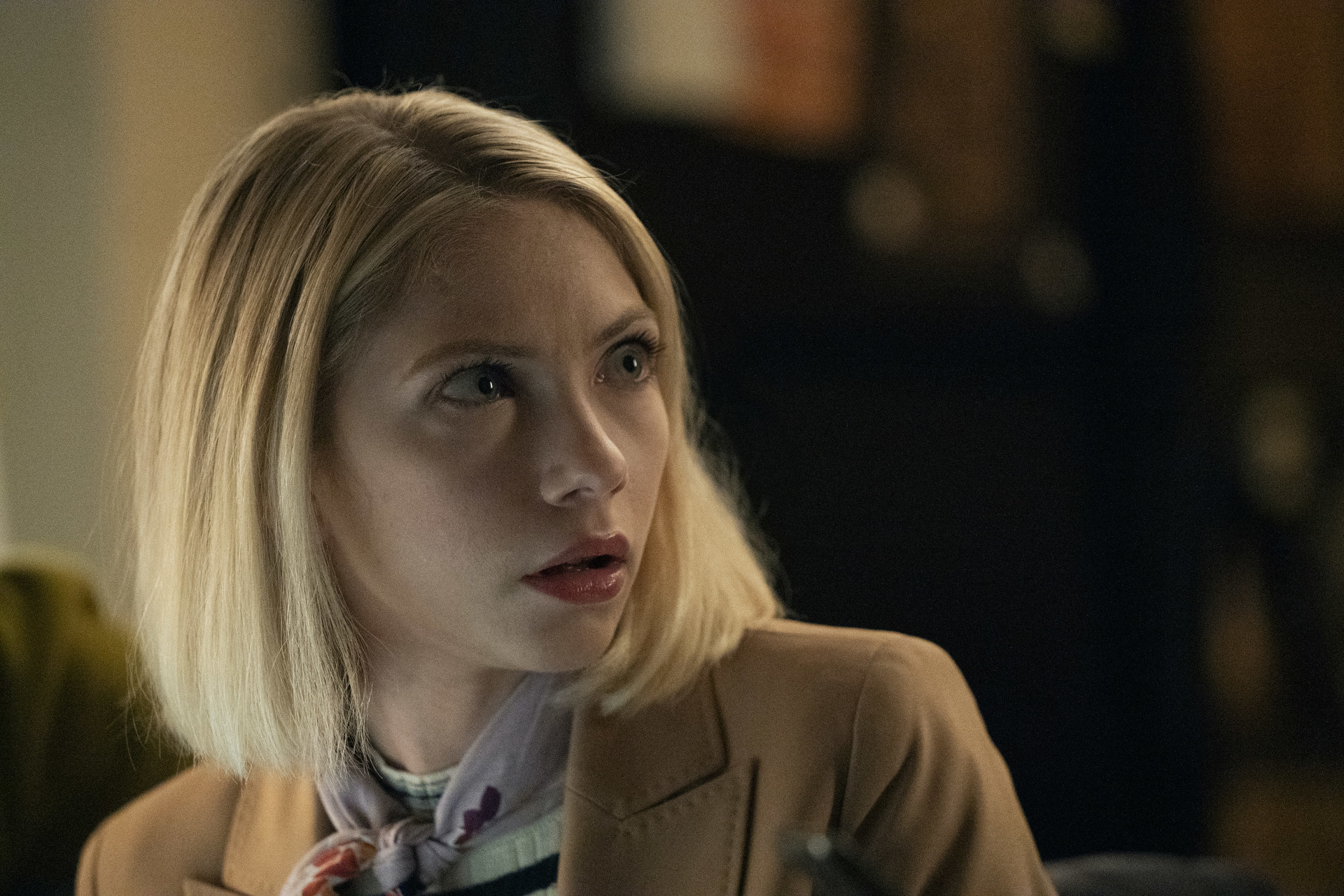
"I have friends who are teachers at private schools in New York City [and heard] their stories about how they navigate this new world. Once I started writing it, and the room got together, articles would come out — like there was an article about educators being bribed by the parents."
4. There are a ton of Easter eggs and callbacks to the original show in the series.
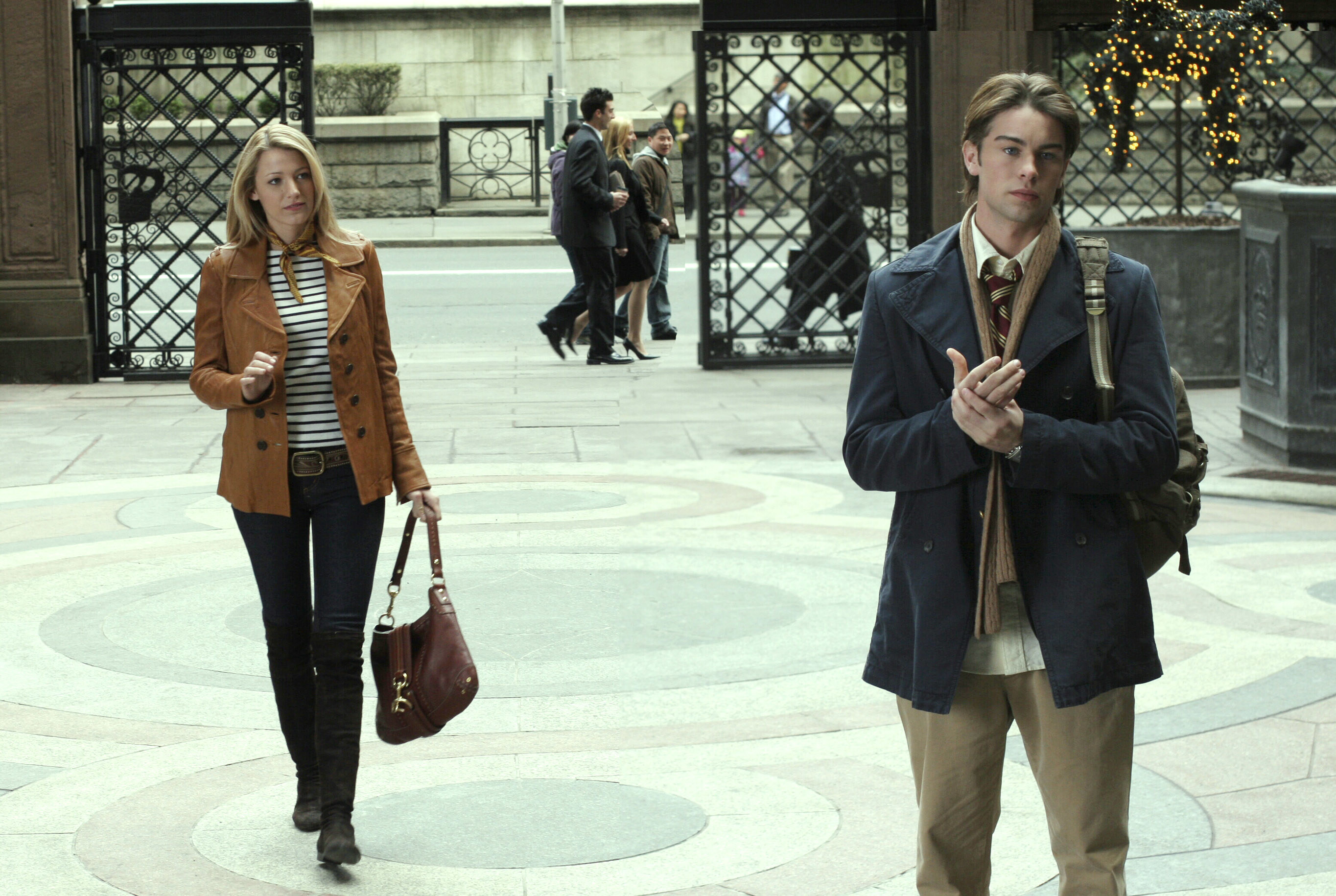
"Every episode has many Easter eggs and small details. Because I was so intricately involved in the first show, I think some of them are just for me! For instance, at some point, a character says to another character, 'I did something terrible' and the response is, 'What do you mean, did you kill someone?' That's the kind of thing where I don't know if other people understand that I did that on purpose."
5. Joshua doesn't actually like the term "reboot" for the new series.
"Because Josh [Schwartz], Stephanie [Savage] and I had this huge tie to the original — they created it, I was there from day two on — it feels to me like we're continuing down the same path. My definition of a reboot in my brain is recasting Blaire and Serena and doing their younger year — but this is a sequel."
6. When writing, Joshua will find pictures of actors that he envisions as a character, and then create the role around them.
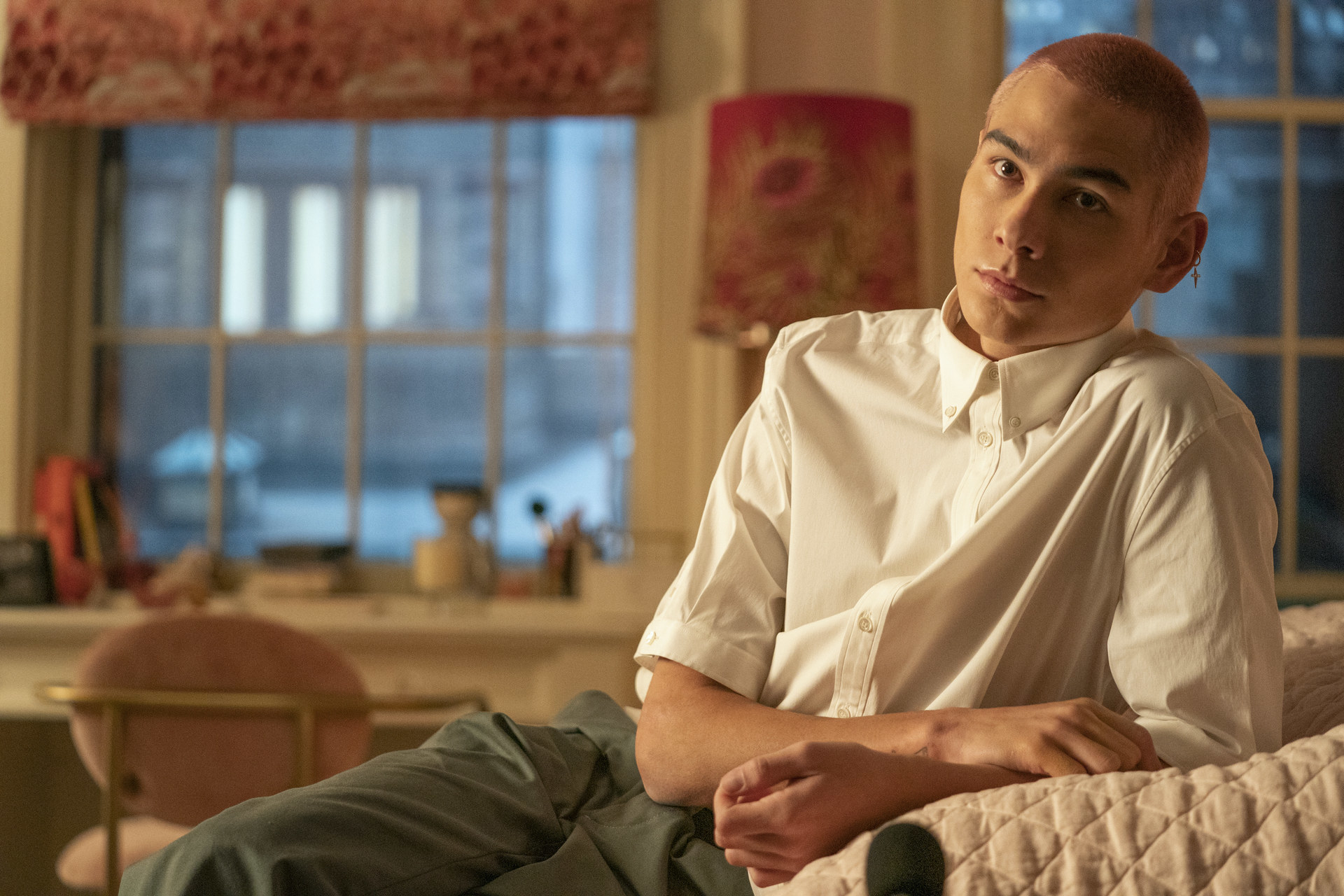
"Whenever I go to write, I have to sort of find images that represent the characters for me — I'll take a headshot of Brie Larson, and I'll find a version of Brie Larson that looks like who I believe the character is like. I will have it professionally printed with the character name on it and put it up on my wall."
7. Sometimes, the actors from these photos will end up being cast — such as Evan Mock [Aki], John Benjamin Hickey [Max's dad], and Adam Chanler-Berat [Jordan].
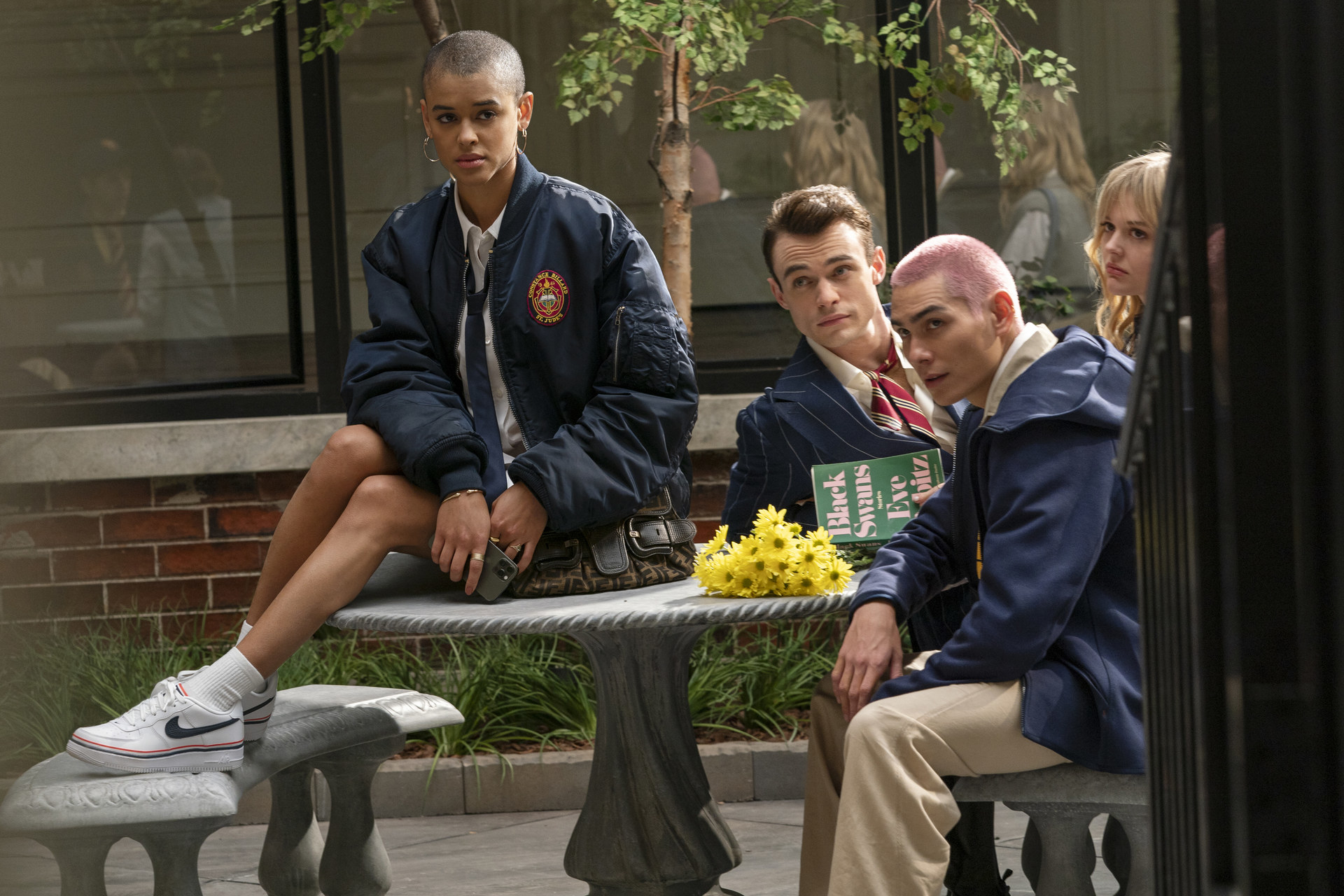
"There were other actors who probably would have gotten [cast as well], but because of COVID, by the time we actually cast, they were on other shows."
8. Typically, the first audition tape Joshua sees will end up being the actor cast.
"Cassandra [Kulukundis, casting director] just found this incredible cast and everyone who came through was amazing. It's one of those rare things where almost every single person was one of the very first, if not the first, audition I saw for that role."
9. Savannah Smith, who plays Monet, was a student at NYU when she was cast in the show.
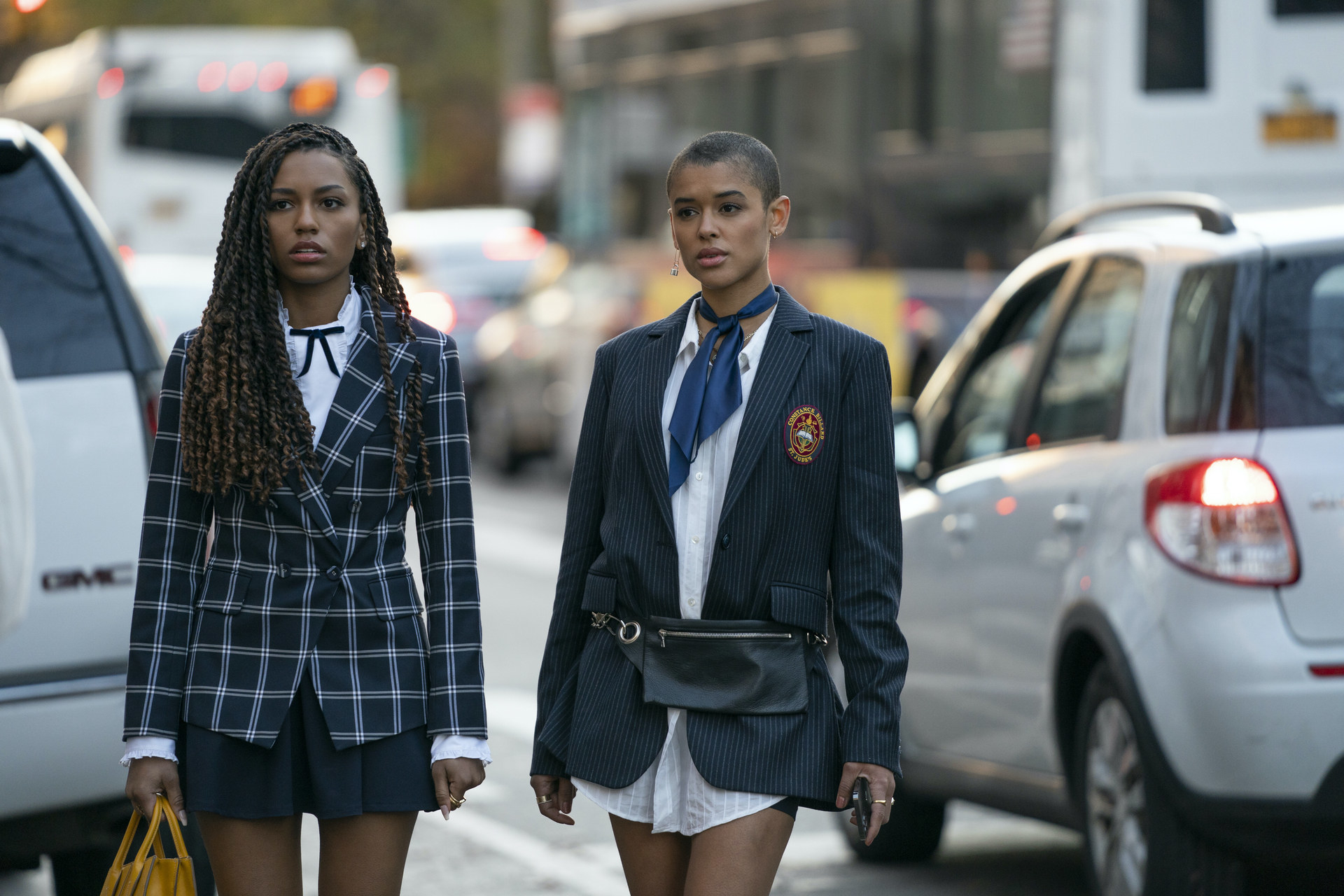
"Savannah was a 19-year-old student at NYU who had not been in anything before, and Cassandra found her at NYU. This is her first thing, she's amazing."
10. Diversity was important when it came to the new series, as it reflected Joshua's own experiences in a New York elite private school — as well as being an important part of the cultural conversation.
"When I went to private school in the '90s, even then my school was not exclusively white, by any means. Also, we talk more openly now about the experiences of BIPOC people in these private school spaces."
11. The series was supposed to start shooting two weeks before the COVID pandemic shut down New York.
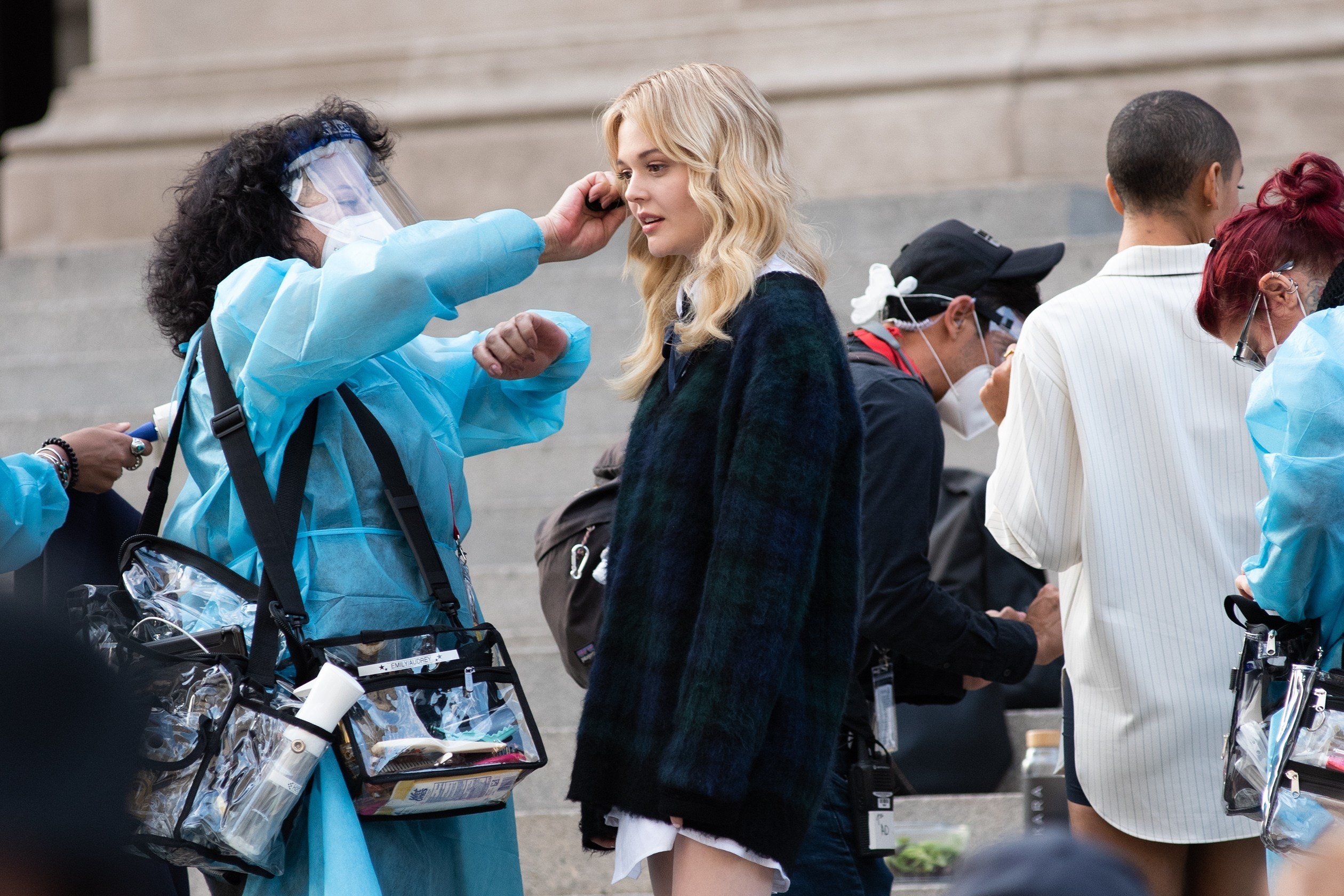
"Suddenly, it became this whole thing of would people want to watch this show? We didn't know how long COVID was gonna last, so does an audience want to see COVID represented? Whether it's represented or not, does an audience want to watch the foibles of rich, privileged people in this moment? There was a lot of conversations about is this the moment, is this right? We went back and forth."
12. However, during the shutdown, HBO extended the series from 10 episodes to 12.
"The writers strike during the first season of the first Gossip Girl was the last time the industry had a pause. Having a pause here allowed us to be like, really, what do we want the show to be? The scripts were coming in, and HBO Max was really excited with the show. So, the production grew, meaning we got some more money, we got some more days, we got the ability to actually tell the stories bigger than maybe we would have."
13. One of the biggest challenges of shooting in New York this time around versus the original series was how many more TV shows are filming in the city.
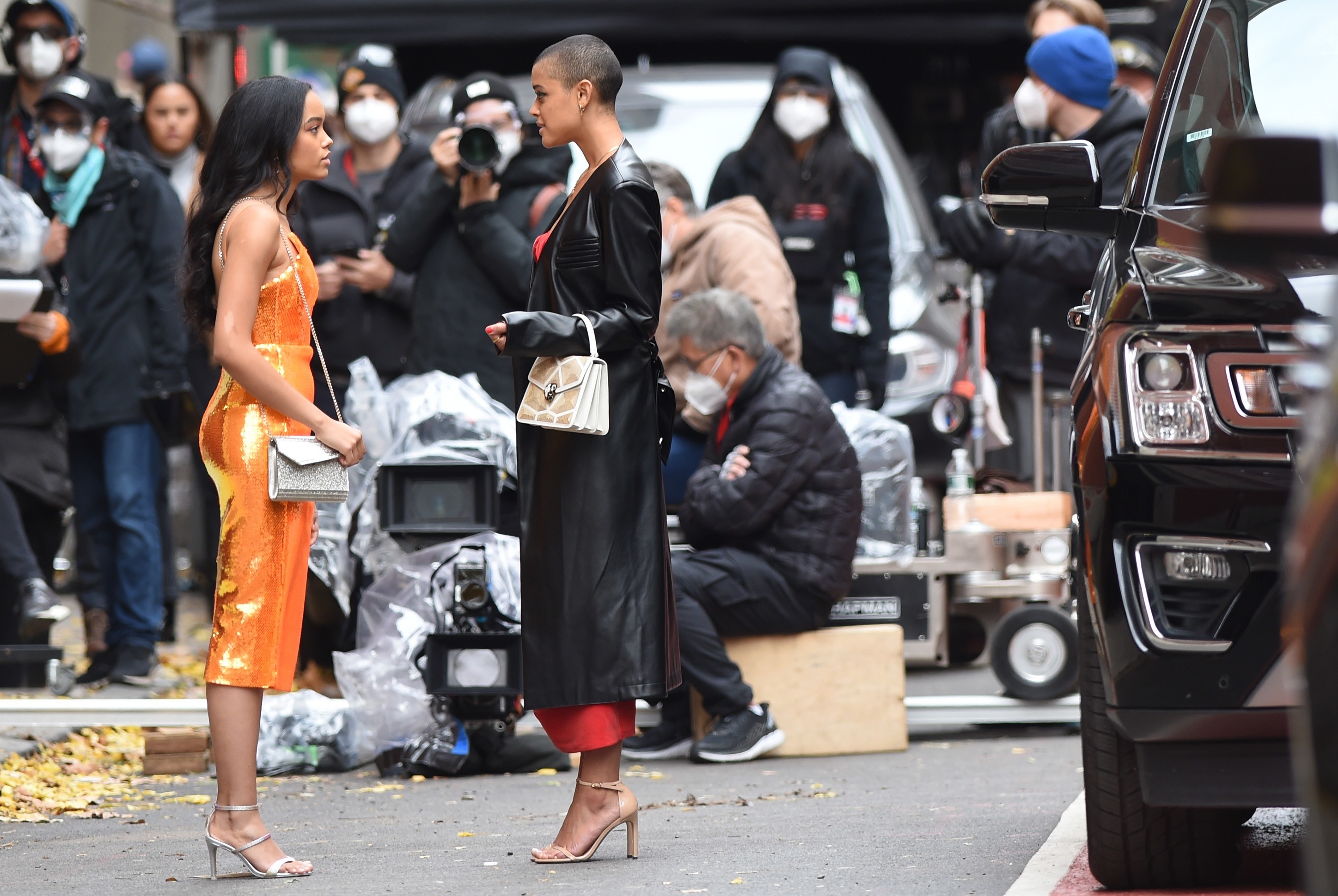
"Right now, there are too many things shooting in the city, which is something that the first Gossip Girl didn't have to deal with. Because there's so many shows, so many neighborhoods are like, no, we will not allow you to shoot here. They're called hot zones and the hot zones change every couple months. It's so sad for me, but this version of Gossip Girl has not a single scene on the Lower East Side because we are not allowed to shoot there."
14. The new series almost didn't have the same school location.
"We didn't even know if we were going to be able to get the same location as the school back. People tend to not realize that our infrastructure is such that we have to have a base camp wherever we go — our base camp consists of dozens and dozens of trailers, from catering, to hair and makeup, to the actors, to generators for power. If there are 30 shows shooting in Manhattan on the same day, there are 30 base camps. Manhattan is so overbuilt and crowded, there really aren't places for 30 base camps — so, you may not be able to shoot. It's a such a logistical nightmare of making this thing that goes by you in 15 minutes."
15. However, the pandemic meant that the show was able to shoot in some restaurants that previously would have been too expensive — like Manhatta, Le Coucou, The Grill, and Frenchette.
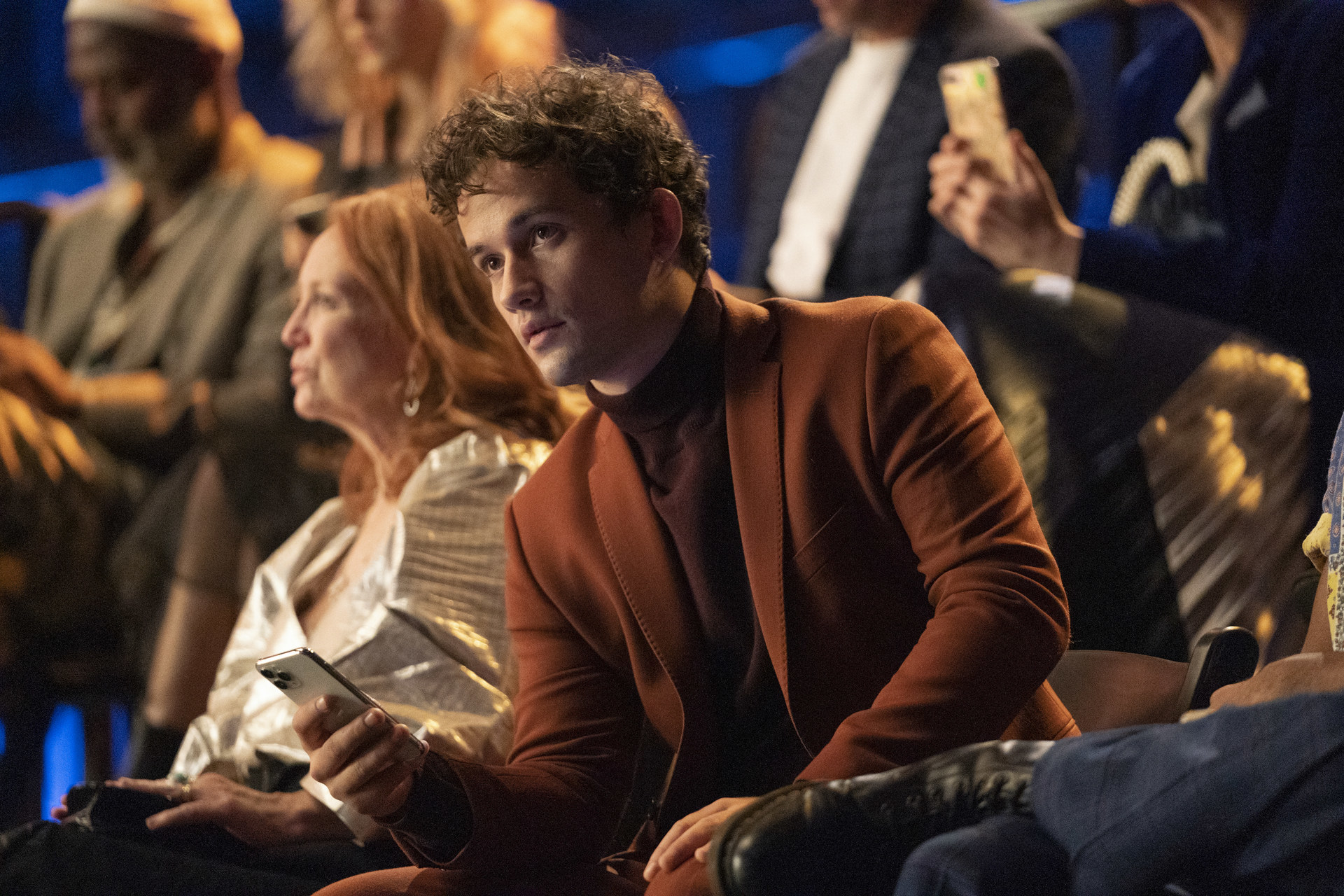
"You have to buy a restaurant out for the whole day — and some restaurants are fancy, so that can be hundreds of thousands of dollars, which we don't have. That's like a big chunk of your budget, but because restaurants were not fully open because of capacity restrictions, for this version of the show we got into spaces that I dreamt about getting into the first time around."
16. And now that things are reopening, shooting at a coffee shop can be as expensive as shooting at The Met.
"Now that everything's opening back up again, we tried to go to a coffee shop, literally a coffee shop and because they've just been allowed to reopen, the price was as astronomical as shooting at the fanciest restaurants because they need money. I was like, oh, coffee shop will be easy! And it's actually like no, a coffee shop cost the same amount of money as shooting at the Metropolitan Museum for a day because they have not had support for 14 months."
17. Joshua emailed the friends of his younger cousin — filmmaker Elizabeth Holm — for research for the original Gossip Girl series. Initially, only one person replied.
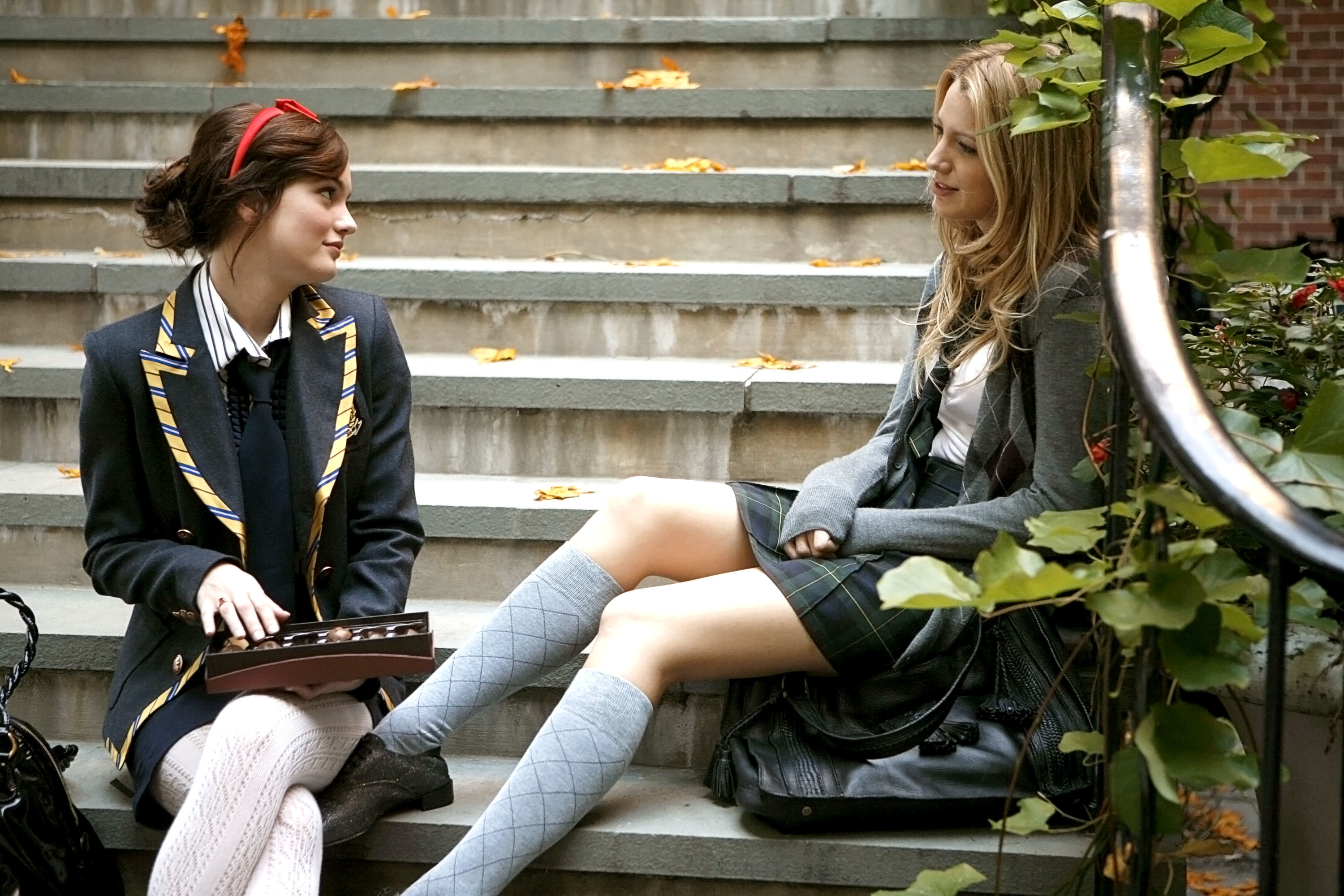
"Liz was probably 16 when I started the first Gossip Girl and she went to Dalton. I was like, 'Liz, can you just get some Dalton friends? Can you guys just start an email chain where you guys just tell me all the things you go to?' What's really funny to me is I went back when I started this and I realized only one friend responded. Everyone's like, what's Gossip Girl?"
18. Joshua learned not to include so many personal family anecdotes after the first series.
"I learned to not put so many personal details in about my family's life [laughs]. There's a lot of that because I was the only person who grew up on the Upper East Side."
19. And finally, he also added that Dan being the original Gossip Girl wasn't discussed when he worked on the original series.
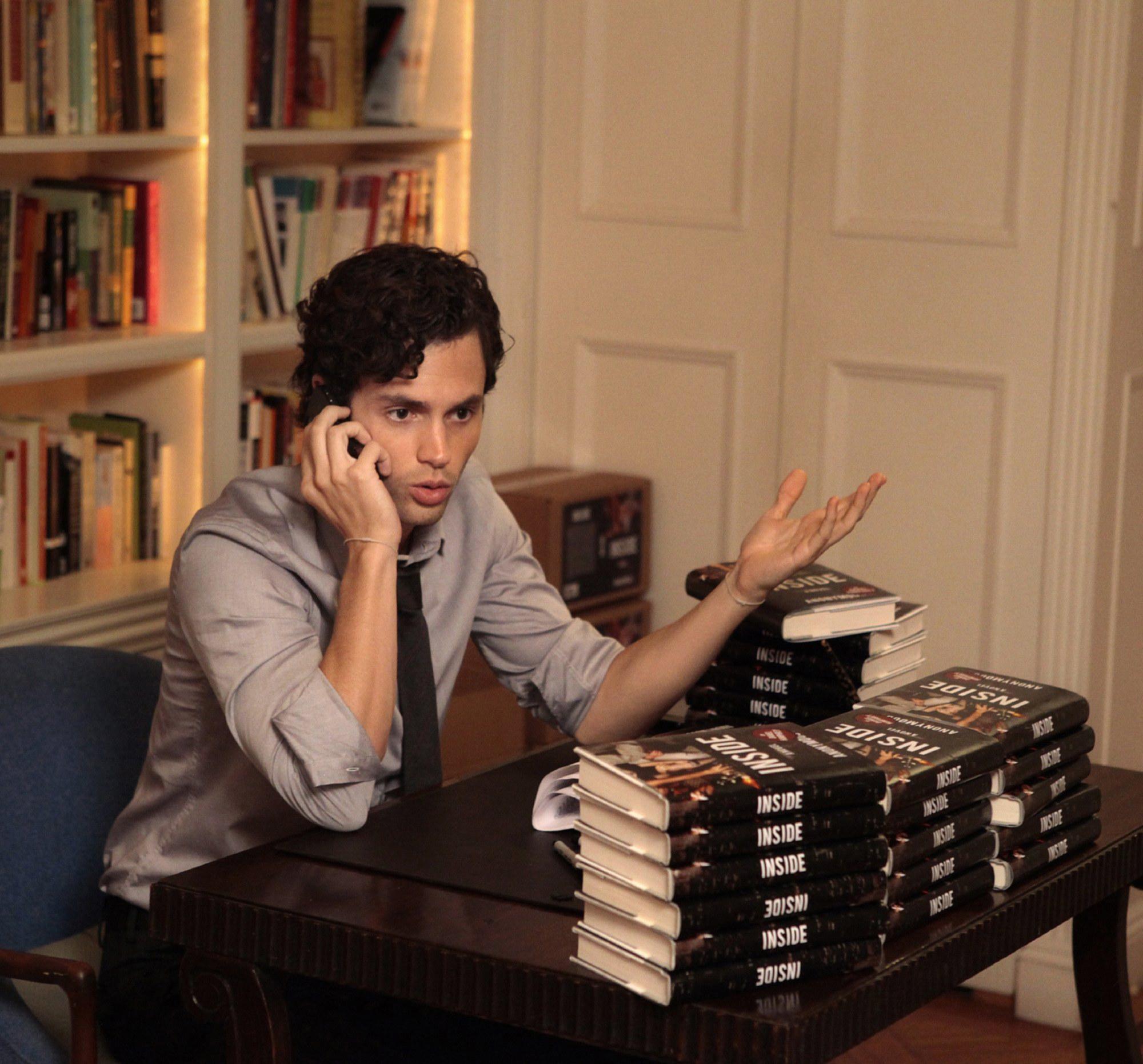
"It wasn't a discussion when I was there. I worked on every season except for the last season, it was never brought up — I can't say never, but it was definitely not on the table when I left. I didn't create the show, and it was the choice of the writers and the creators. Therefore, I respect that it — just in my brain, it was going to go a different way."
